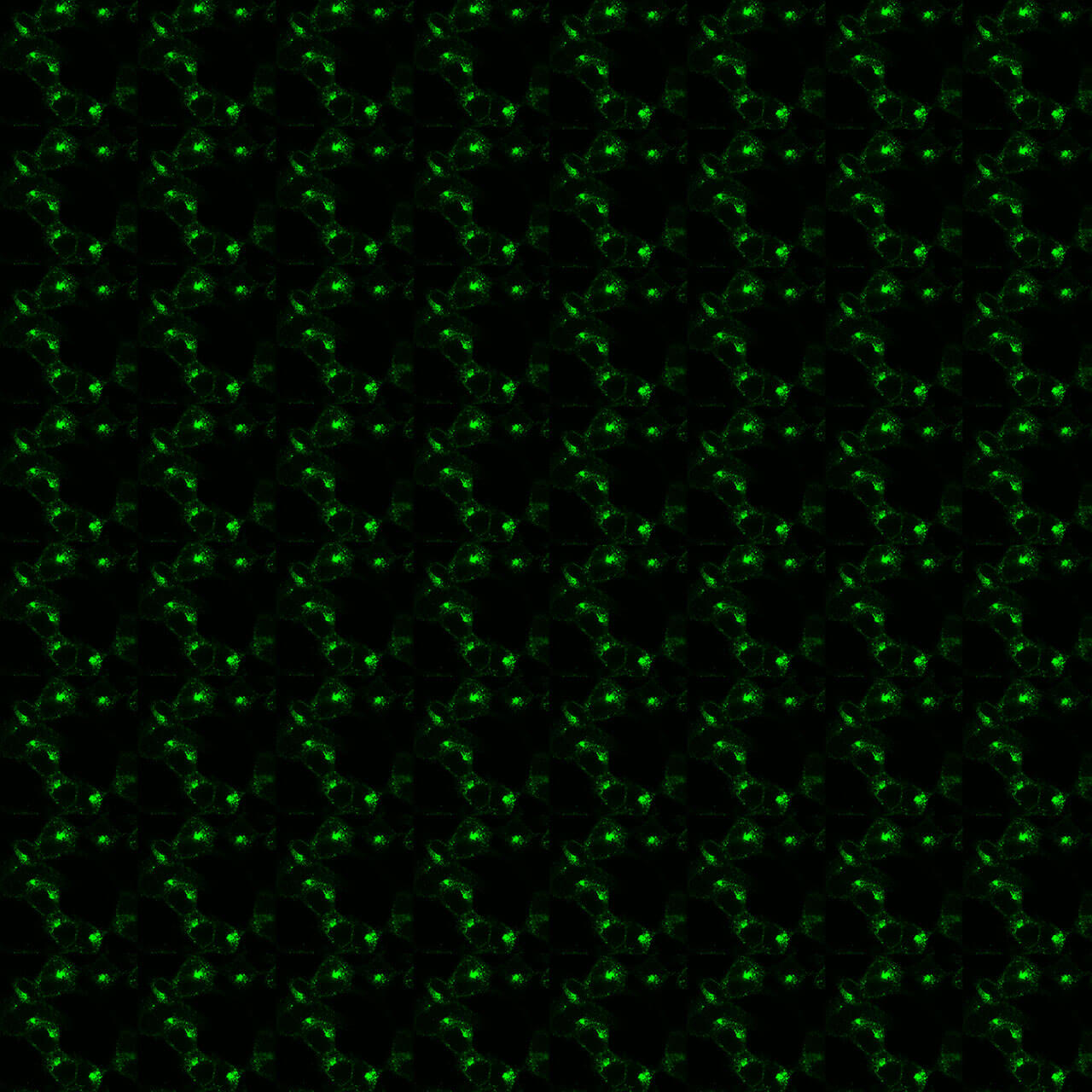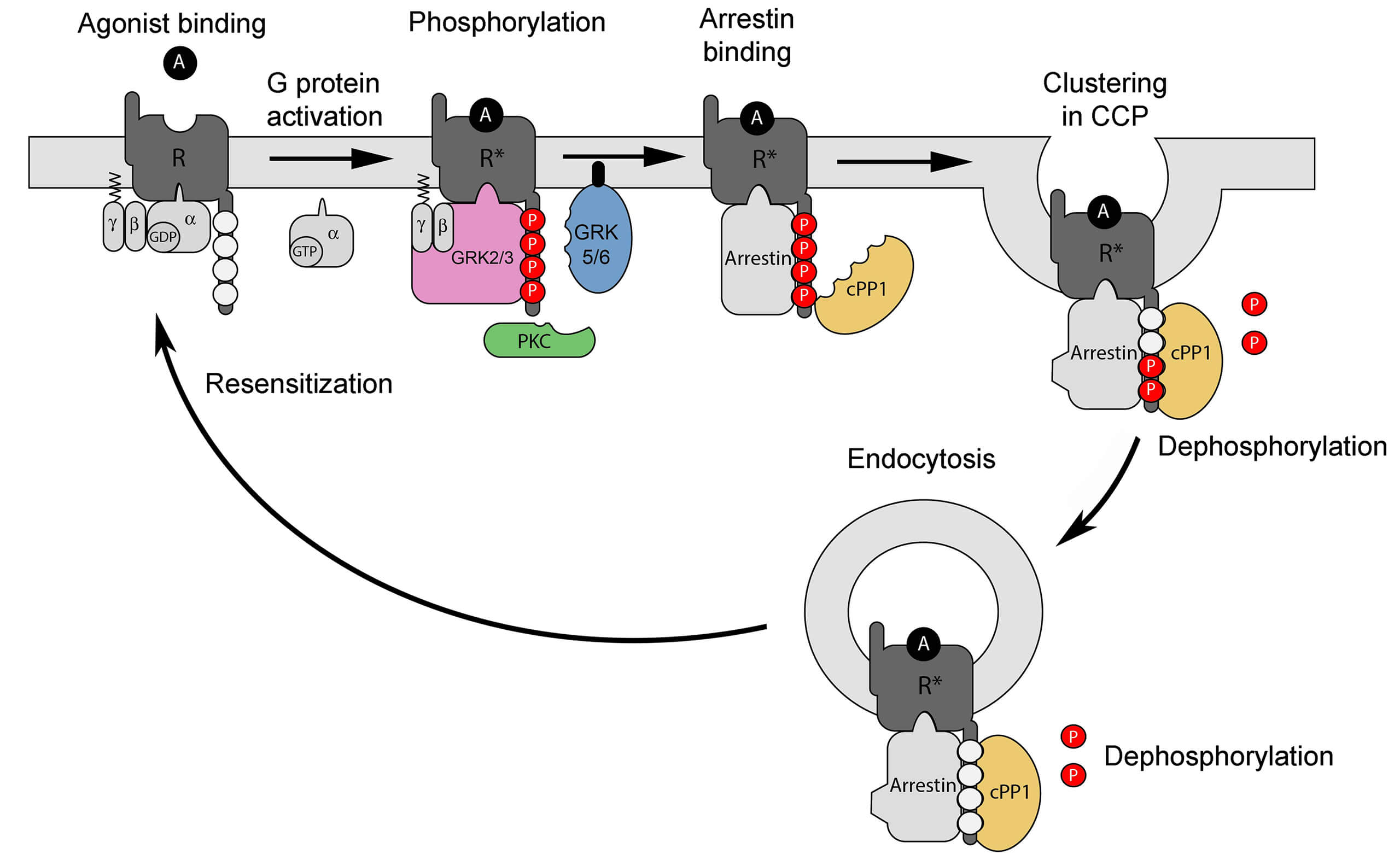No results were found for the filter!
NEW
 pS338/pS339-CXCR4 (phospho-CXC Chemokine...
pS338/pS339-CXCR4 (phospho-CXC Chemokine... Serine338 and Serine339 (S338/S339) are a major phosphorylation sites of the CXCR4 receptor. The pS338/pS339-CXCR4 antibody detects phosphorylation in response to agonists and after PKC activation. S338/S339 phosphorylation is a key...
CHF400.00 *
NEW
 ACKR4 (non-phospho), Atypical Chemokine...
ACKR4 (non-phospho), Atypical Chemokine... The ACKR4 receptor antibody is directed against the distal end of the carboxyl-terminal tail of human Atypical Chemokine Receptor 4. It can be used to detect total ACKR4 receptors in Western blots independent of phosphorylation. The...
CHF400.00 *
Citations
 pS350/pT352-ACKR3 (phospho-Atypical Chemokine...
pS350/pT352-ACKR3 (phospho-Atypical Chemokine... Serine350/Threonine352 (S350/T352) is major phosphorylation site of the Atypical Chemokine Receptor 3 (ACKR3, previously called CXCR7). The pS350/pT352-ACKR3 antibody detects phosphorylation in response to agonists and after PKC...
CHF400.00 *
NEW
 pS355/pS360-ACKR3 (phospho-Atypical Chemokine...
pS355/pS360-ACKR3 (phospho-Atypical Chemokine... Serine355/Serine360 (S355/S360) is major phosphorylation site of the Atypical Chemokine Receptor 3 (ACKR3, previously called CXCR7). The pS355/pS360-ACKR3 antibody detects phosphorylation in response to agonists. S355/S360...
CHF400.00 *
NEW
 pS345/pS346-CMKLR1 (phospho-Chemerin Receptor 1...
pS345/pS346-CMKLR1 (phospho-Chemerin Receptor 1... Serine345/Serine346 (S345/S346) is a major phosphorylation site of the Chemerin receptor 1 (CMKLR1). The pS345/pS346-CMKLR1 antibody detects phosphorylation in response to high-efficacy agonists. S345/S346 phosphorylation is a key...
CHF400.00 *
NEW
 pS352/pT354-CMKLR1 (phospho-Chemerin Receptor 1...
pS352/pT354-CMKLR1 (phospho-Chemerin Receptor 1... Serine352/Threonine354 (S352/T354) is a major phosphorylation site of the Chemerin receptor 1 (CMKLR1). The pS352/pT354-CMKLR1 antibody detects phosphorylation in response to high-efficacy agonists. S352/T354 phosphorylation is a key...
CHF400.00 *
NEW
 pS357/pS358-CMKLR1 (phospho-Chemerin Receptor 1...
pS357/pS358-CMKLR1 (phospho-Chemerin Receptor 1... Serine357/Serine358 (S357/S358) is a major phosphorylation site of the Chemerin receptor 1 (CMKLR1). The pS357/pS358-CMKLR1 antibody detects phosphorylation in response to high-efficacy agonists. S357/S358 phosphorylation is a key...
CHF400.00 *
NEW
 pS331/pS333-CMKLR2 (phospho-Chemerin Receptor 2...
pS331/pS333-CMKLR2 (phospho-Chemerin Receptor 2... Serine331/Serine333 (S331/S333) is a major phosphorylation site of the Chemerin receptor 2 (CMKLR2). The pS331/pS333-CMKLR2 antibody detects phosphorylation in response to high-efficacy agonists. S331/S333 phosphorylation is a key...
CHF400.00 *
NEW
 pT335/pS337-CMKLR2 (phospho-Chemerin Receptor 2...
pT335/pS337-CMKLR2 (phospho-Chemerin Receptor 2... Threonine335/Serine337 (T335/S337) is a major phosphorylation site of the Chemerin receptor 2 (CMKLR2). The pT335/pS337-CMKLR2 antibody detects phosphorylation in response to high-efficacy agonists. T335/S337 phosphorylation is a key...
CHF400.00 *
NEW
 pS343/pT345-CMKLR2 (phospho-Chemerin Receptor 2...
pS343/pT345-CMKLR2 (phospho-Chemerin Receptor 2... Serine343/Threonine345 (S343/T345) is a major phosphorylation site of the Chemerin receptor 2 (CMKLR2). The pS343/pT345-CMKLR2 antibody detects phosphorylation in response to high-efficacy agonists. S343/T345 phosphorylation is a key...
CHF400.00 *
NEW
 B2 (non-phospho-Bradykinin Receptor 2 Antibody)
B2 (non-phospho-Bradykinin Receptor 2 Antibody) The non-phospho-B2 receptor antibody is directed against the distal part of the carboxyl-terminal tail of human B2. It can be used to detect total B2 receptors in Western blots independent of phosphorylation. The non-phospho-B2 antibody...
CHF400.00 *
Citations
 BB2 (non-phospho), Bombesin Receptor 2 Antibody
BB2 (non-phospho), Bombesin Receptor 2 Antibody The BB2/GRPR receptor antibody is directed against the distal end of the carboxyl-terminal tail of human Bombesin Receptor 2 (previously called Gastrin-Releasing Peptide Receptor). It can be used to detect total BB2 receptors in Western...
CHF400.00 *
Recently viewed


